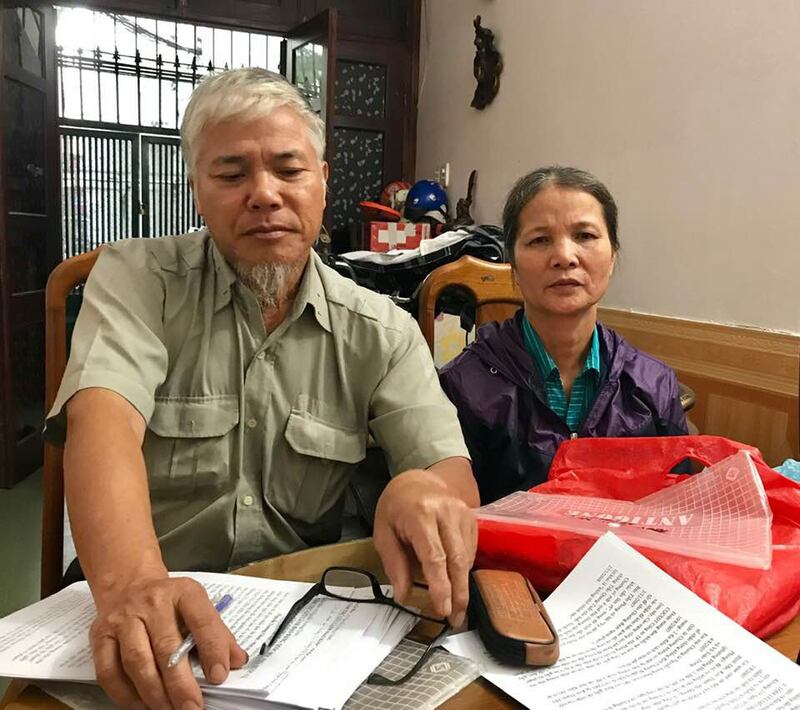The family of death-row prisoner Nguyen Van Chuong met with him at a temporary detention facility on Monday, days after more than a dozen international rights organizations publicly urged Vietnam’s president to halt his impending execution.
Additionally, a lawyer who has worked on the case told Radio Free Asia that he believes President Vo Van Thuong will likely direct the courts to halt Chuong’s execution so that responsible agencies can re-examine the case.
Family members were asked on Aug. 4 to make arrangements with court officials to receive Chuong’s remains – a notice that led many to believe that authorities were preparing to carry out the death sentence.
But relatives weren't given information on an execution date and it was still unclear late last week whether the execution had already been carried out.
Chuong appeared healthy on Monday but was in low spirits and cried several times during the one-hour conversation, his mother told RFA.
“He said although our family had received a notice [about the execution], he hadn’t,” Nguyen Thi Bich said.
On Friday, Amnesty International, the European Union and other international organizations cited concerns that he didn’t receive a fair trial and was tortured during the investigation.
Chuong was convicted in the 2007 robbery and murder of a police major in Hai Phong city in northeastern Vietnam. Two others were convicted in the case.
He and his family have made many petitions over the years, asking all levels of the government to reconsider his death sentence.

Petitions and the president
Chuong’s mother told RFA that several security guards observed Monday’s visit between Chuong, his parents, his daughter and other relatives at the Hai Phong province facility. They sat on one side of a glass partition and spoke with him via telephone, she said.
“He said he has sent petitions through his detention facility’s channel in vain because the detention facility didn’t allow him to send them out and had thrown the petitions into table drawers,” she said.
RFA contacted Hai Phong police’s temporary detention facility to seek comments on Bich’s allegations but couldn’t reach the agency through a telephone number listed on the Internet.
Chuong has alleged that the testimonies of other suspects contradicted each other and that he was beaten and coerced by the investigator in the case. The make of weapon described and the marks on the victim’s body were inconsistent in their statements.
Additionally, state media reports have shown that several people from Chuong’s village – 40 kilometers (24 miles) away from the crime scene – were willing to testify that they saw him at the time of the murder.
Lawyer Le Van Hoa studied the case file as Head of Inspection of Unfair Sentences of the Central Committee of Internal Affairs from 2013 to 2014. He said his team saw that the case was full of holes and proposed that the Central Committee of Internal Affairs consult with the National Assembly Standing Committee to direct and re-examine this case.
But for unknown reasons, the Central Committee for Internal Affairs stopped looking into the case and the death penalty remained in place, Hoa told RFA last year.
Hoa later retired and began providing legal counsel to Chuong’s family. He told RFA on Monday that all prisoners, including those on death row, have the right to lodge a petition to responsible agencies to make complaints or express their wishes.
“I think the petitions and recommendations of those who pay attention to this case have reached State President Vo Van Thuong,” he said.
Translated by Anna Vu. Edited by Matt Reed and Malcolm Foster.
